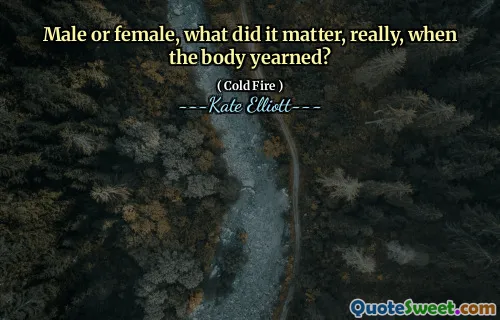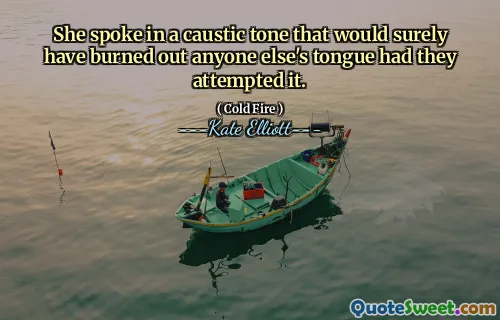
She spoke in a caustic tone that would surely have burned out anyone else's tongue had they attempted it.
The quote vividly illustrates the power of words and the emotional impact of a sharply cutting tone. When someone employs a caustic manner of speaking, it often reflects underlying anger, disdain, or sarcasm, which can pierce through layers of civility. Such speech acts act as a double-edged sword; while they may serve to assert dominance or express deep-seated frustrations, they also risk alienating others and damaging relationships. This particular sentence underscores the destructive potential of language—literally likening speech to a burning instrument that might metaphorically 'burn out' the tongue, signifying that such harsh words can be self-destructive or take a toll on the speaker as well. It prompts reflection on the importance of choosing words carefully, emphasizing that tone and delivery are just as crucial as content. The imagery invokes a sense of danger—words capable of inflicting harm being so intense that they could incapacitate a speaker themselves. It also hints at the resilience or perhaps the reckless nature of the character who dares to speak in such a manner, highlighting a possible capacity for cruelty or profound frustration. In a broader context, this quote reminds us that communication isn’t merely about conveying facts but involves emotional nuance, where a caustic tone can leave lasting scars. Recognizing the power and impact of our words is essential for mindful interaction, fostering empathy, and avoiding destructive exchanges. The metaphor serves as a potent reminder of how language can be wielded either as a tool for healing or as a weapon for destruction, thus urging us to consider the consequences of our speech.







